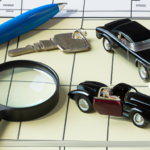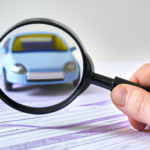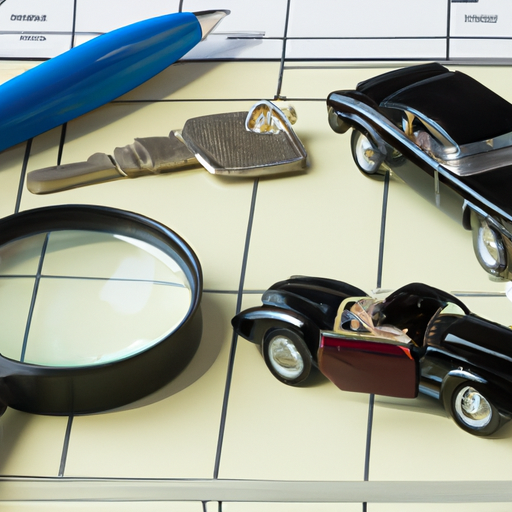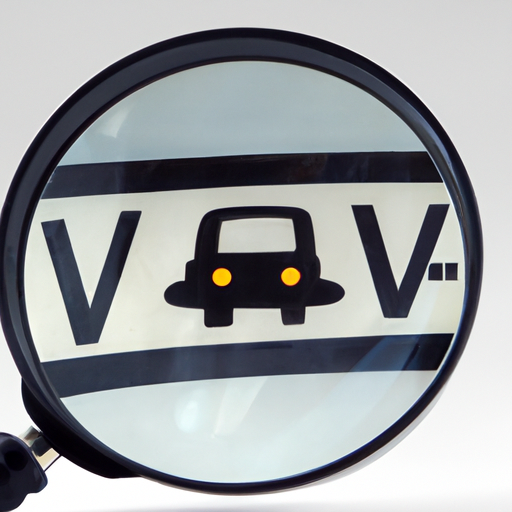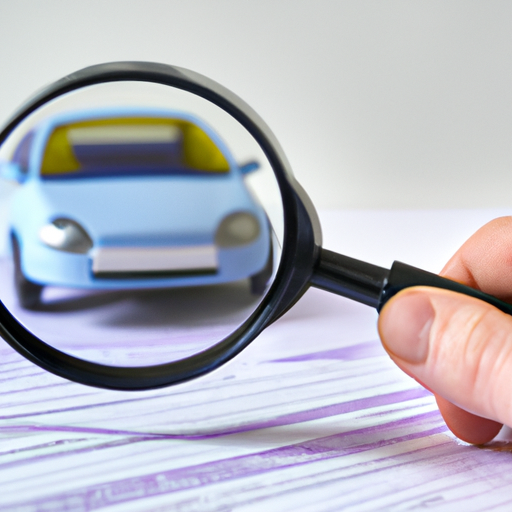Unraveling the secrets of a vehicle’s past can often be akin to piecing together an exciting mystery. “Mastering Vehicle History: Best Methods to Consider”, is your guide on this adventure. Armed with savvy research tools and a knack for detail, you’ll transform into a vehicle history expert in no time. Grasp the crucial skills, learn the best practices, and understand how to scrutinize potential red flags in a car’s past. After all, knowledge is power, and we’re here to empower you in procuring the best, most reliable vehicles out there.
Understanding the Importance of Vehicle History
Vehicle history is like a crystal ball showing you the past of a vehicle to help you make informed decisions about a potential purchase. From a car’s first registration to the last acknowledged ownership, every mark on its history paints a part of the overall picture.
Why vehicle history matters
Imagine you wanted to buy a second-hand vehicle, and you stumble upon a vehicle that looks perfect. It seems well-maintained, drives smoothly, and is priced right. However, it hides some skeletons in its closet, which you can only reveal though its history. A car’s history gives you a wealth of invaluable information about its mileage, accident history, title information, and more. It can help you avoid buying a car that may cost you a lot in repairs or might not even be legally sellable.
Potential risks of neglecting vehicle history
Neglecting to look at a vehicle’s history before buying can potentially land you in a host of problems. You might wind up buying a vehicle that had numerous previous owners, which may suggest the car has seen a lot of wear and tear. The vehicle might have been in serious accidents, resulting in hidden damage. Worst case scenario, the vehicle could be stolen or might have been misused.
Common issues found in vehicle history
Some common issues that you might come across while checking a vehicle’s history include outstanding liens, odometer rollbacks, salvage rebuilds, flood damage and even issues with the vehicle’s title. All of these issues can affect the vehicle’s performance, safety, and value, and at worst, make the vehicle a legal liability.
The Basics of Vehicle History Report
A vehicle history report (VHR) is a statement that will provide you a car’s history, helping you verify whether the used car you want to buy has a clean slate or a sketchy past.
Key elements of vehicle history report
A typical vehicle history report includes several key pieces of information: ownership history, title details, reported accidents or damage, mileage readings, and recall information. Often, it also includes details about the vehicle’s repair history, and if the car was used as a taxi, rental, or police vehicle.
Interpreting the history report
The key to interpreting a car’s history report lies in looking for any red flags that could signal potential problems such as inconsistencies in mileage readings or the mention of “salvage title” which means the car has been declared a total loss by an insurance company.
Obtaining a vehicle history report
To obtain a vehicle history report, you can use online services such as carfax or AutoCheck. You simply need to input the Vehicle Identification Number (VIN), and the service provides you with a full report. Alternatively, your local DMV or equivalents in many countries also offer ways to obtain such records.
Using Vehicle Identification Number (VIN)
VIN or Vehicle Identification Number serves as the DNA of the vehicle, storing all the specifics like the make, model, production year and more.
What is a VIN
A VIN is basically a unique 17-character code given to each vehicle that is used to track recalls, registrations, warranty claims, and even thefts.
How to find a vehicle’s VIN
For most vehicles, the VIN is located on the lower left corner of the dashboard right in front of the steering wheel. You can view it by looking through the windshield. However, it can also be located in other parts like the door post on the driver’s side or in the vehicle’s engine bay.
Importance and utilities of VIN
VIN is needed in various scenarios including getting a vehicle history report and when you are purchasing insurance. It’s also used by law enforcement agencies to track stolen vehicles.
Commercial Vehicle History Check Services
Commercial check services can help make your car buying experience smoother, offering detailed reports about a car’s history.
Overview of commercial check services
Commercial check services, like Carfax and AutoCheck, provide comprehensive vehicle history reports, offering a variety of information from the date of manufacture to any incidents of damage, recalls, or if the car was used for commercial purposes.
Reliability and accuracy of these services
Though they are reliable and accurate to an extent, these check services might overlook some information. Their reports are only as good as the information they can get and often, everything cannot be reported.
Comparing different commercial services
When comparing services, pay attention to the breadth and depth of information provided. Do they offer buyback protection if their report missed a serious issue? The cost can also be a factor to consider.
Government Database for Vehicle History
There are also free ways for you to check a vehicle’s history. One such method is through government databases.
National Motor Vehicle Title Information System (NMVTIS)
NMVTIS is a database managed by the federal government. It offers information about a vehicle’s title, odometer data, and damage history.
Department of Justice’s database
Managed by the Department of Justice, the database provides information about a vehicle’s condition and history. However, it might not have as much information as some paid services.
Advantages and limitations of government databases
These databases can offer detailed information for free, making them beneficial for a casual check or if you’re planning to buy an inexpensive used car. However, they might not contain a complete history of the vehicle, especially minor incidents that were not reported or repairs and maintenance records.
Dealing with Stolen Vehicle Reports
When you come across any stolen vehicle reports, it is good to approach cautiously.
Understanding stolen vehicle reports
Stolen vehicle reports indicate that the vehicle was reported stolen at some point. It is crucial to ensure that you are not dealing with a stolen vehicle.
Actions to take after discovering stolen vehicle reports
If you come across a stolen vehicle report, immediately report to local law enforcement. Provide them with as much information as possible to help them in their investigation.
Legal implications of stolen vehicle reports
Buying a stolen vehicle, knowingly or unknowingly, can lead to several legal issues. You might lose the vehicle and the money you paid for it, or might even face legal charges.
Confirming Vehicle Accident History
One of the main things you need to keep an eye on when buying a used vehicle is its accident history.
Significance of accident history
An accident in a car’s history doesn’t necessarily mean it’s a bad buy, but it’s important to know what the car’s been through. That’s because the extent and location of the damage can impact its performance and longevity.
Various types of accidents reported
Accidents can range from minor fender benders to severe crashes. Some accidents might lead to cosmetic damage, while others might cause structural damage which can be expensive to repair.
Vehicle conditions that imply past accidents
Look out for inconsistent body panel gaps, fresh paint, and mismatched tires. Things like misaligned doors and slight differences in the car’s color can also suggest past accidents.
Inspecting Vehicle Recalls and Warranty
When looking to buy a used vehicle, don’t forget to check for any recalls the vehicle might have had and its warranty status.
Meaning of vehicle recall
Vehicle recalls occur when a manufacturer identifies a defect that compromises the safety of the vehicle. It means that the fault needs to be fixed, usually free of charge by the manufacturer.
How to search for recalls
Using either the car’s VIN or make and model, you can search for recalls on several online platforms such as the National Highway Traffic Safety Administration’s database.
Impact of recalls on vehicle safety
While recalls often indicate a potential safety issue, a recall that is addressed properly should not cause you too much concern.
Detecting Mileage Fraud
Mileage fraud, or clocking, happens when a vehicle’s odometer reading is artificially decreased to make it appear as though the car has lower mileage than it truly has.
What is mileage fraud
Mileage fraud is a deceitful practice whereby sellers tamper with the odometer readings to show lower figures in a bid to inflate the car’s selling price.
Looking for signs of mileage fraud
Signs of mileage fraud might include unusually low mileage for the vehicle’s age or excessive wear and tear on the vehicle’s interior and exterior that doesn’t match the odometer reading.
Effect of mileage fraud on vehicle value
Rolling back odometer can significantly inflate the value of the vehicle, as cars with lower mileage are typically worth more than those with high mileage.
Conclusion: Mastering Vehicle History
Understanding a vehicle’s history is crucial when considering a used vehicle. It helps to find out whether the vehicle has undergone any major accidents, the number of previous owners, any outstanding recalls and helps to avoid mileage fraud.
Summary of essential points
A thorough understanding of the vehicle’s history can help you make informed decisions and protect your financial interests. Combined with a pre-purchase inspection by a trusted mechanic, you can ensure peace of mind with your purchase.
Reiteration of the importance of vehicle history
The vehicle history remains a vital part of the buying process because it provides you a peek into the vehicle’s past. It gives you confidence in purchasing a used vehicle, knowing that you’ve made a well-researched decision.
Final words of caution for responsible vehicle purchase
Remember, a clean history report isn’t a guarantee that a vehicle is free from problems, but it significantly reduces the risks. Always take a test drive and consider getting a mechanic’s opinion on any used vehicle before you buy it. Take your time and don’t be pressured into a hasty purchase. Happy car buying!

